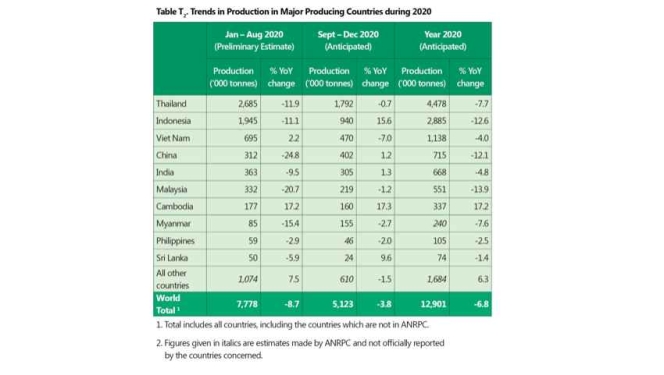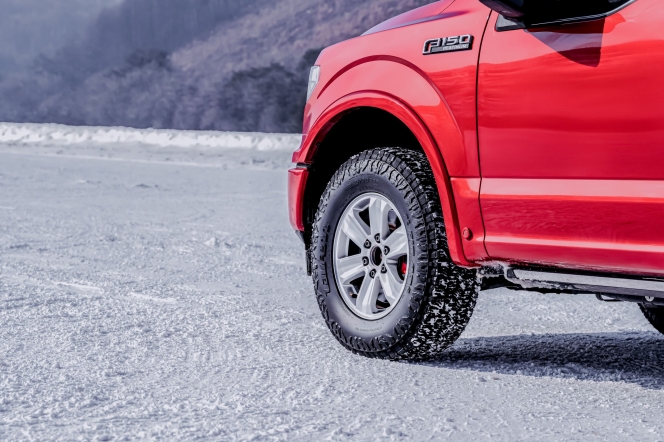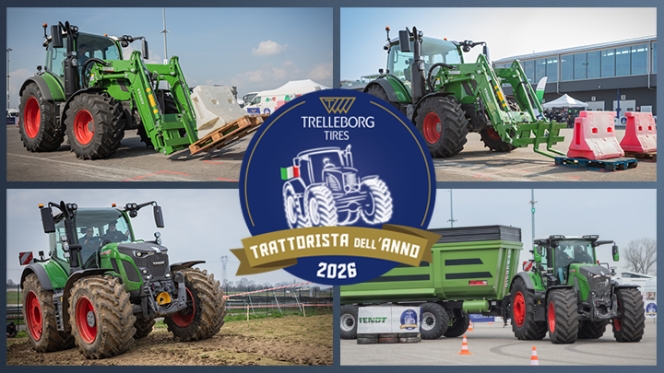Uncertainties impact world rubber supply, demand
- By TT News
- December 28, 2020

The downward revision in the world supply outlook for 2020 is largely due to the scaling down of the outlook for Thailand and India, according to ANRPC. The outlook on the production of NR in Thailand has been scaled down by 332,000 tonnes to 4.478 million tonnes. The country’s revised outlook for 2020 represents a 7.7% decline from the previous year as against a 0.9% anticipated fall reported a month ago.

The harvesting and primary processing of rubber in Thailand are severely affected by acute shortage of labourers. The migrant labourers from neighbouring countries and those from other provinces within the country find it difficult to reach back and resume the various farm management activities including tapping and primary processing. Aggravating the situation, tropical storm ‘Noul’ damaged rubber plantations in several provinces of Thailand in the last week of September besides causing heavy rains, flash floods, and water run-offs.
In August, northern Thailand was hit by the tropical storm ‘Sinlaku’ causing flash floods in 18 northern provinces of the country. The loss in output arising from previous year’s incidence of a new fungal leaf disease is already factored in. Abnormal leaf fall resulting from fungal diseases usually impacts on the yield performance of the affected for two succeeding years.
In India, the production anticipated in 2020 has been scaled down by 42,000 tonnes to 668,000 tonnes, ANRPC study said. The revised outlook represents a 4.8% decline from the previous year as against a 1.1% anticipated increase reported a month ago. The country’s NR production sector is impacted by a burst in the number daily new cases of Covid-19 infections in the State of Kerala since the beginning of September and the abnormal leaf fall caused by the outbreak of Phytophthora leaf disease during July and August. It is reported that the incidence of abnormal leaf fall during this year is less severe compared to the previous year.

 Demand fall
Demand fall
There has also been a fall in world consumption of NR by 11.7% y/y to 8.151 million tonnes during the first eight months of 2020 (Jan-Aug), as per preliminary estimates. Based on the revised estimates and forecasts, the world consumption outlook for the full year 2020 is marginally scaled up by 67,000 tonnes to 12.611 million tonnes by representing an 8.4% fall from the previous year. The outlook for 2020 as reported a month ago was 12.544 million tonnes by representing an 8.9% fall from the previous year.
China has marginally revised up its consumption outlook for 2020 in view of an observed earlier-than expected economic recovery and acceleration in growth. A survey conducted by Nikkei revealed that the growth has been more pronounced in the manufacturing sector. The Manufacturing Purchasing Managers’ Index (PMI) improved to 51.5 in September from 51.0 recorded in August and 51.3 anticipated for September, according to a survey conducted by the country’s National Bureau of Statistics and the China Federation of Logistics and Purchasing. The country’s automobile sector has made a major turnaround. The domestic retail sales of passenger vehicles, including minivans, SUVs and multipurpose vehicles, increased 7.4% y/y in September 2020, the third straight monthly gain. The domestic sales of passenger vehicles had increased 6.0% y/y in August 2020.

As per the revised outlook, China is anticipated to consume 5.055 million tonnes of NR during 2020, down 8.9% from the previous year. The country’s consumption outlook for 2020, as reported a month ago was 5.043 million tonnes, down 9.1% from the previous year.
India has scaled-up its consumption outlook for 2020 to 923,000 tonnes from 900,000 tonnes reported earlier in the year. Auto sales in India have made a U-turn. The domestic sales of passenger car increased 31.3% y/y in September 2020, the highest growth over the past 27 months. The trend reversal in passenger car is driven by preference for personal mobility during the pandemic, gradual opening up of markets, easing of supply-chains, labour availability, and excitement of new vehicle launches. The domestic sales of two-wheeler grew 12% y/y in September 2020, the highest growth over the past 21 months. Sales of tractor increased 16% y/y during the month, the highest growth over many years in the past. The domestic sales of LVC (Light Commercial Vehicles) and M&HCV (Medium and Heavy Commercial Vehicles) declined by 3.0% each during the month, after double digit declines till August 2020.
Looking ahead, according to ANRPC, the world demand for NR will remain constrained by the uncertainties clouding the global economic recovery, acceleration in the number of new coronavirus cases, reintroduction of control measures and partial lockdowns across countries and a likely long delay in the mass availability of the vaccine. On the positive side, there are increased hopes of further fiscal aid in the US to keep its economy on track. The White House has reportedly raised its stimulus offer from the earlier proposed $1.0 trillion to $1.5 trillion, and further to $1.8 trillion, though that is still short of $2.2 trillion proposed by the Democrats.

- Yokohama Rubber
- Yokohama ADVAN Tyres
- Nürburgring 24-Hour Race
- Nürburgring Langstrecken-Serie
- BMW M Motorsport
Yokohama Becomes BMW M Motorsport’s Official Tyre Partner For 2026 Nürburgring Events
- By TT News
- March 03, 2026

The Yokohama Rubber Co., Ltd., has entered into a new agreement to serve as the official tyre supplier for BMW M Motorsport, the division responsible for the brand's global racing endeavours. This collaboration will debut at the prestigious Nürburgring 24-Hour Race and throughout the Nürburgring Langstrecken-Serie in 2026.
This renewed partnership revives a historical connection between the two companies, who previously worked together on the same iconic circuit from 1980 to 1990. During that initial decade-long stint, their combined efforts secured two overall victories. After an interval of nearly four decades, they are reuniting for the current season to compete in the premier SP9 class, fielding the BMW M4 GT3 EVO. For this campaign, Yokohama will equip the vehicle with its high-performance ADVAN racing tyres, with the shared objective of capturing another overall win.

Beyond its tie-up with the BMW team, Yokohama Rubber continues its longstanding commitment to the Nürburgring. It will provide its tyres to numerous leading teams contesting both the endurance series and the 24-hour event this season. The company is focused on achieving an overall championship victory for a vehicle equipped with its YOKOHAMA brand tyres.
Franciscus Van Meel, CEO, BMW M GmbH, said, “We are excited to welcome YOKOHAMA as Official Partner of BMW M Motorsport for our Nürburgring programme. YOKOHAMA’s technical expertise and motorsport passion strengthen our drive for maximum performance and precision. Their support allows our team to focus fully on what defines BMW M Motorsport: pushing the limits on every lap. We look forward to a strong endurance season.”
Team: Schubert Motorsport
Class: SP9
Car: BMW M4 GT3 EVO
Tyres:
ADVAN A005 (for dry conditions); Sizes: front 300/680R18, rear 330/710R18
ADVAN A006 (for wet conditions); Sizes: front 300/680R18, rear 320/710R18
Race Schedule (as of date of this release)
March 14 (Sat): NLS Round 1
March 21 (Sat): NLS Round 2
April 11 (Sat): NLS Round 3
April 18 (Sat) –19 (Sun): Nürburgring 24-Hour Race (Qualifiers) , NLS Rounds 4 & 5
May 14 (Thu) –17 (Sun): Nürburgring 24-Hour Race
June 20 (Sat): NLS Round 6
August 1 (Sat): NLS Round 7
September 12 (Sat) –13 (Sun): NLS Rounds 8 & 9
October 10 (Sat): NLS Round 10
Second-Generation Laufenn X FIT AT2 All-Terrain Tyre Launched In US
- By TT News
- March 03, 2026

Hankook Tire has introduced the Laufenn X FIT AT2, a new addition to its all-terrain tyre lineup aimed at drivers who require durability and adaptability without compromising on everyday driving comfort. Positioned as an affordable option, this tyre is engineered to handle a mix of on-road and off-road conditions while delivering long-lasting value.
Building upon the foundation of its predecessor, the X FIT AT2 brings several performance upgrades. It features enhanced traction across varied landscapes, a 15 percent improvement in tread longevity and reliable handling in different weather conditions. The tyre is designed to fit a broad spectrum of light trucks and SUVs, with availability ranging from 15 to 22 inches to accommodate popular vehicle models in the market.
This launch reflects Laufenn’s ongoing strategy to diversify its offerings as it strengthens its presence in over 100 countries. Since its introduction in Europe, the brand has consistently expanded its range for both passenger vehicles and commercial applications, responding to shifting consumer needs. The X FIT AT2 reinforces this direction by providing a balance of rugged capability and composed road manners for those who frequently transition between highways and rougher terrain.
Engineered for resilience, the tyre incorporates a reinforced structure, including select sizes with three-ply sidewalls to resist cuts and impacts. Its tread design features directional and lateral grooves that enhance water dispersion and grip on slippery or loose surfaces. Additional protective elements such as offset shoulder blocks and rim guards help shield against debris and curb damage. A two-step deep sipe pattern promotes uniform wear, contributing to extended usability.
Certified with the Three-Peak Mountain Snowflake symbol, the X FIT AT2 offers dependable performance in dry, wet and snowy winter conditions. It comes with warranty coverage tailored to its sizing, offering 60,000 miles for P-metric versions and 50,000 miles for LT-metric options. With this release, Laufenn continues to round out its portfolio alongside existing lines such as the S FIT, G FIT and I FIT series.
KC Jensen, Vice President – U.S. Passenger Car and Light Truck Sales, Hankook Tire America Corp, said, “The X FIT AT2 represents the next step forward for the Laufenn brand as we continue to deliver practical, dependable solutions for everyday drivers who also want the freedom to explore off-road. Building on the success of the original X FIT AT, this second-generation tyre offers a stronger blend of durability, versatility and everyday comfort at an accessible value.”
Comerio Ercole To Showcase Calendering And Digital Solutions At Two Premier 2026 Trade Fairs
- By TT News
- March 03, 2026

Comerio Ercole is set to make a significant impact on the global stage in 2026 with its participation in two major industry exhibitions. The company will showcase its latest advancements at both Chinaplas 2026 and Tire Technology Expo 2026, highlighting a comprehensive portfolio designed to enhance precision, productivity and sustainability in polymer processing.
At Tire Technology Expo, Comerio Ercole will present integrated systems tailored for the tyre industry, focusing on high-performance rubber calendering and digital intelligence. A flagship solution is the TRIPLE 4-roll calendering unit. Its innovative "S" configuration provides remarkable flexibility by enabling the processing of both textile and steel cord, as well as the production of rubber sheeting, all within a single line. The system’s capability for simultaneous lamination ensures high precision and product stability while minimising defects. Downtime is a critical factor in tyre production, and the patented FASTEEL system directly addresses this. By automating the steel cord change process, it dramatically reduces changeover time from hours to minutes, allowing the line to continue running during preparation and thereby maximising plant availability and operator safety. Following the calendering process, the SUPERCUT system guarantees clean, precise transversal cuts for both steel and textile-reinforced rubber, integrating guillotine and high-speed rotary blades to minimise waste and streamline downstream winding.
Simultaneously, at Chinaplas 2026, taking place in Hall 2.1 at Stand C85, the company will place a strong emphasis on its patented HYDROPLUS concept for PVC and plastic calendering. This technology suite is engineered to deliver micrometric precision and robust process stability through advanced hydraulic controls. Central to this is HYDROGAP, a system that achieves exceptional thickness uniformity with high-resolution gap positioning. Complementing this are HYDROSAFE, which ensures rapid roll separation for ultimate protection, and HYDROTHERM, a feature that intelligently compensates for thermal expansion to maintain precise gap settings during fluctuating operational temperatures.
Beyond mechanical innovation, the company is driving digital transformation with its CELEMETRY and MINERV-AI platforms. CELEMETRY focuses on sustainability by converting production data into actionable insights for environmental reporting and energy optimisation. MINERV-AI captures and standardises operational expertise through artificial intelligence, supporting more effective maintenance protocols, training procedures and overall operational consistency. Through these combined efforts at both exhibitions, Comerio Ercole is demonstrating a holistic approach to advancing the plastics, rubber and tyre industries.
Trelleborg Tires And Fendt Partner For 2026 Tractor Driver Of The Year Event
- By TT News
- March 02, 2026

The seventh edition of Trelleborg Tires’ Tractor Driver of the Year competition took place at the Cremona Circuit in Italy on 28 February 2026, drawing 50 skilled participants from across the nation. Held at a venue renowned for its professional standards, the event has become a fixture in the agricultural calendar, offering a platform for drivers to demonstrate their expertise while experiencing advanced tyre technology in practical scenarios. After a demanding day of challenges, Francesco Coppe emerged victorious, distinguished by his exceptional precision and versatility across the various disciplines.
The competition featured a series of exercises designed to assess core abilities, including manoeuvring, loader operation, reverse driving and trailer handling, culminating in a field regularity test. Throughout these tasks, participants directly observed the benefits of Trelleborg’s ProgressiveTraction technology, which aims to boost traction, reduce soil impact and enhance overall efficiency. This year, Fendt joined as the technical partner, supplying the machinery for the event. The tractors used, such as the Fendl 300 Vario Gen5, 500 Vario Gen4 and 800 Vario Gen5 models introduced in 2025, exemplified how modern agricultural engineering supports operators in achieving high performance with comfort and ease, both on road and in the field.


Daniela Gambatesa, Marketing Manager Italy, Trelleborg Tires, said, “The ‘Tractor Driver of the Year’ once again confirms its position as a landmark event for the agricultural sector: a unique opportunity to celebrate expertise, innovation and professionalism. This 7th edition recorded a remarkable participation of tractor drivers, highlighting the growing importance of the initiative. A key highlight of the event was the new ‘5,000 Hours of Guaranteed Performance’ campaign dedicated to ProgressiveTraction® treads, originally launched in July 2025 and now featuring a customised look for Fendt tractors equipped with VarioDrive technology. This initiative allows us to prove in real working conditions the long-term durability and efficiency of our tyres, offering tangible support to agricultural professionals in their daily operations. The collaboration with Fendt as technical partner further reinforces our shared commitment to excellence, combining advanced technology with high-performing solutions for the industry.”
Silvia Uderzo, Advertising & Sales Promotion Specialist, Fendt Italia, said, “Fendt has believed in the ‘Tractor Driver of the Year’ project since its early editions, reflecting the trust and importance we attribute to this initiative. Taking part again this year represents a valuable opportunity to enhance the skills of tractor drivers and to demonstrate how the technology, performance and comfort of our machines play a decisive role in improving operational efficiency. The partnership with Trelleborg Tires confirms our shared commitment to delivering increasingly high-performing and sustainable solutions to agricultural professionals, combining innovation with close attention to their real operational needs.”







Comments (0)
ADD COMMENT